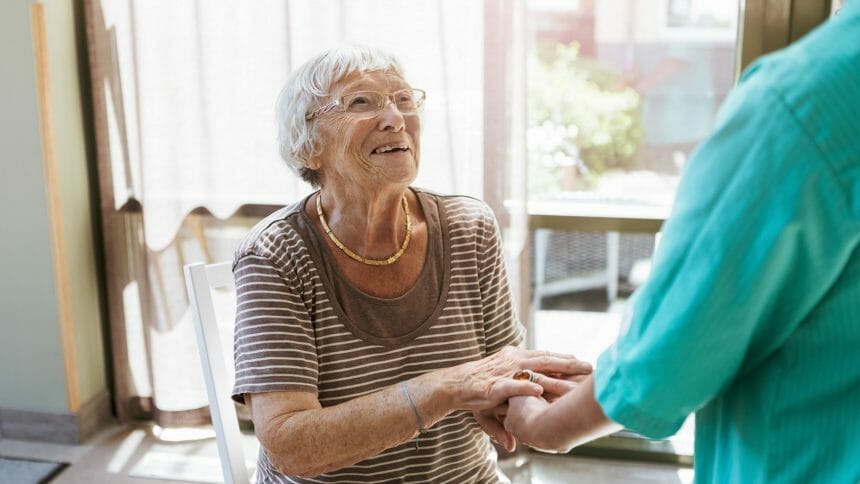

Nursing home caregivers went beyond normal expectations throughout the unprecedented global crisis brought on by the coronavirus, asserts a new report from the American Health Care Association.
“Our heroic long-term caregivers never wavered from our commitment to our residents during the COVID-19 pandemic,” AHCA President and CEO Mark Parkinson said. “Nursing homes should be recognized for their efforts during this once-in-a-lifetime global crisis, and as we continue to focus on improving the quality of life for our residents, lawmakers and health policy officials must also work with us to implement lasting change by providing resources necessary to further enhance care.”
Key findings:
- Long-stay residents in nursing homes faced 15% fewer hospitalizations during the global crisis than typical.
- Short-stay patients saw an 8% functional improvement during the pandemic.
- 72% of more than 110,000 infection control-focused inspections of nursing homes conducted from 2020 to 2022 were deficiency-free.
- During the first nine months of the global crisis, the number of nurse staff hours per resident day remained steady or, if anything, increased slightly.
“The tragic loss of life was due to the nature of the virus — not because of inadequate care from caregivers,” the report authors stated.
COVID-19 had devastating effects on skilled nursing facilities, AHCA noted, yet the report indicates that caregivers spent more time with residents than they did before the pandemic and continued to make clinical advancements. Further, AHCA said it found that nursing home caregivers continue to work hard to help residents adapt to a new way of life coming out of the pandemic, re-engage with loved ones and participate in social activities now that the worst of the global crisis seems to be over.
Almost 60% of COVID-19-related deaths in nursing homes happened during the first seven months of the multi-year global crisis, before the first vaccines were developed and approved, AHCA noted. The report states that, at the height of the omicron surge in mid-January, nursing home residents were four times less likely to succumb to the virus compared with at the height of the winter surge in 2020, before vaccines were available.
According to AHCA, independent research from various academic institutions frequently found that high spread in the community is correlated with outbreaks in nursing homes; that is, nursing home residents were not at greater risk, statistically, than members of the general population.


